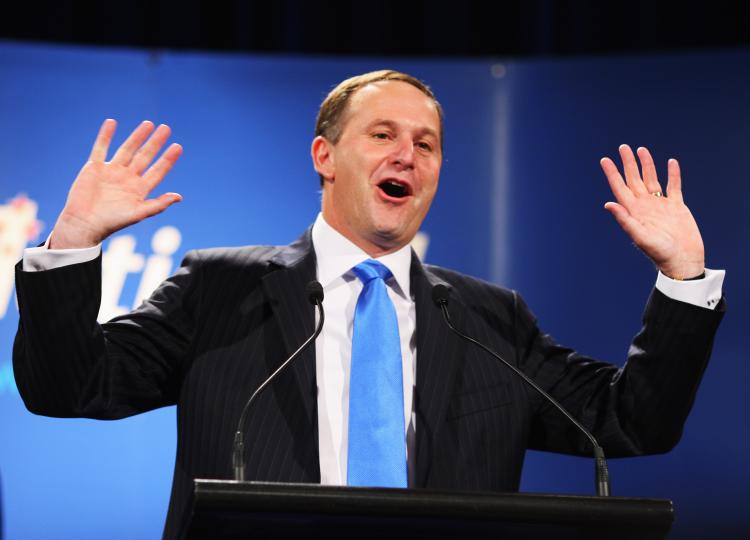A vote for change was the message that voters gave New Zealand politicians yesterday with the National Party winning a decisive victory over the incumbent Labour Party.
The National Party won 45 percent of the vote to Labour’s 33 percent. The minor parties also increased their share of the vote: Green Party won 6.5 percent, Act Party 3.7 percent and Maori Party 2.2 percent. The Progressive and United First Party each won 0.9 percent of the vote.
John Key, a former investment banker and National Party leader since 2005, is a relativel newcomer to politics.
As the election date approached, there were doubts that John Key had the preparation or political experience to become prime minister but two pre-election televised debates showed that he was in fact a match for the Prime Minister and leader of the Labour Party, Miss Helen Clark.
Miss Clark surprised her supporters by announcing that she would be standing down as the leader of the Labour Party. She has been leader of the Labour Party for fifteen years and Prime Minister for nine years.
Under the MMP (Mixed Member Proportional voting) system of voting, one or more parties usually forms a coalition with the winning party as it is often difficult for a single party to win more than fifty percent of the votes.
Voters were able to cast their votes strategically as most parties had, unlike in previous years, indicated their allegiances prior to the election..
The Progressives, Greens and New Zealand First Parties had aligned themselves with Labour while the Act and United Parties voted to go with the National Party.
The lead-up to the election was subdued compared to previous elections, with some people blaming the Electoral Finance Act. The legislation passed at the end of 2007 denied people the right to voice their opinions either for or against parties or politicians, experts said.
In the view of many people, the campaigns were lackluster with parties failing to outline policies that would, in their view, lift New Zealand out of its economic woes.
With the Maori Party winning five seats, parliament will now have an overhang of two seats, bringing the total number of seats to 122.
New Zealand First failed to win an electorate seat or reach the five percent threshhold that would have enabled them to have a member of parliament and it is being predicted that the party, which has been in parliament since 1993, will now fade away.
An estimated 79 percent of registered voters turned out to vote.






Friends Read Free